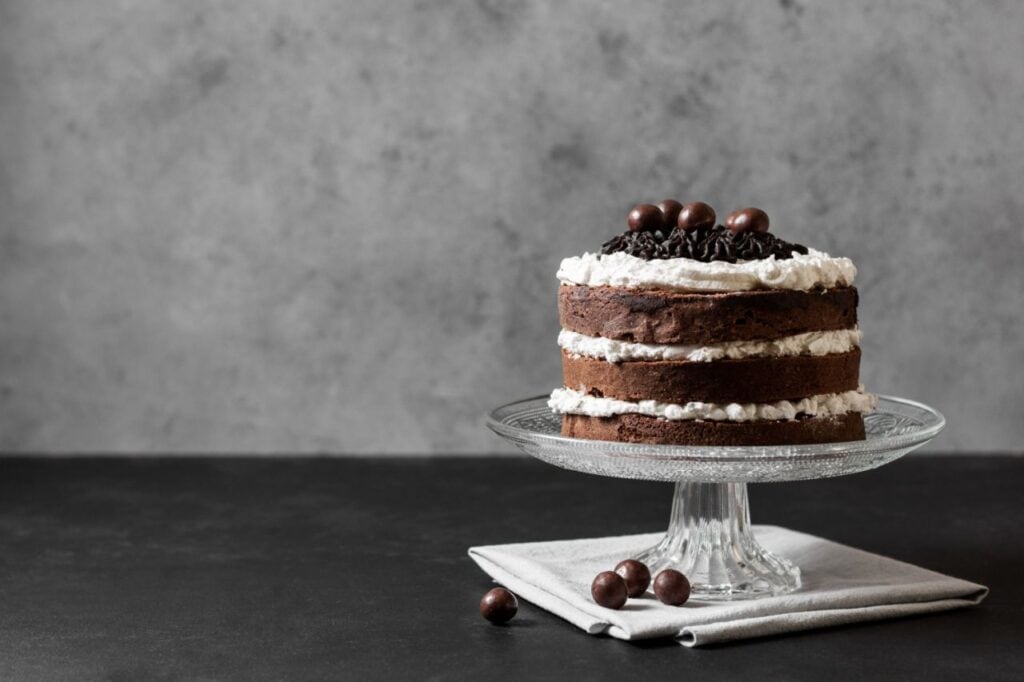Do you enjoy baking? Are you the go-to person for the school or local non-profit organisations' cookie-sale fundraiser? Do you binge-watch baking competitions on TV wishing you could compete to earn the grand prize to open your bakery? Then you might want to consider profiting from your ability to bake yummy treats.
Baked goods businesses have grown in popularity over the last few years, but actually, they've been around for a while. Mrs Fields started selling her decadent cookies in the 1970s. Many entrepreneurs have recently started selling their cakes, cupcakes, and cookies from home and have grown into regular retail bakeries and franchises.
When it comes to home baking, there are many different treats you can make, including:
- Cakes and cupcakes
- Cookies
- Brownies and bars
- Pies
- Muffins
- Bread
- Pastries
- Biscotti
- Dog treats
Starting a home-based bakery might sound fun and easy to do – after all, you're already baking. But there are a few cons to running a home-based baking business that you'll need to consider before baking your first batch of goodies.
Pros Of A Home-Based Baking Business
There are several great reasons to start selling your baked goods from home, including:
- Do what you love, assuming you love baking.
- Creative expression. Perhaps you put a unique twist on your baked goods.
- Easy to start. You already have a kitchen and knowledge of cooking.
- There's always a market for yummy baked goods.
- Can sell locally and online, depending on your baked good's ability to deliver or ship.
Cons Of A Home-Based Baking Business
There's a downside to all businesses, including ones that involve selling baked goods from home, such as:
- Foodservice businesses are usually regulated by your state's occupational or health department, so you'll need to determine your state's laws regarding the sale of food items baked from home and make sure you comply.2
- Most states require that your baking equipment (i.e. mixers and spoons) and supplies (i.e. flour) be separate from your personal cooking use. In some cases, you'll need a separate kitchen. Some states allow you to use your kitchen, but you'll still need separate equipment and supplies.
- You only earn money when you sell baked items, which means you can spend a great deal of time cooking to create enough goods to sell to meet your income goals.
- While your family may love your cooking, your customers may not. Competition might be tough, and you'll need to know how to stand out in the crowd.
- If you are successful, you'll likely outgrow your home kitchen.
What You Need To Start A Home-Based Baking Business
You should know how to bake and that your concoctions are very tasty. In addition, there are several other things to know or obtain when starting a baking business, including:
- Sufficient skill and knowledge of safe food preparation and potential dietary issues. For example, you'll want to disclose if you have peanuts in your kitchen to warn consumers who are allergic to the nut.
- A retail or foodservice background would be helpful.
- There is a supply of ingredients plus room to store them, a regular shopping regimen, and good suppliers. Remember, you may need to store your equipment and ingredients separately from your ones.
- Your state, county and city require any licences or inspections. A health inspector may visit your home.
Understanding your competition and how your baked goods will stand out in the crowd.
How To Start A Home-Based Baking Business
If you're ready to start baking up profits, here are the steps to launching your home-based baking business.
- Find out the laws and regulations of your state regarding food service businesses.
- Obtain needed licences and permits to start your business. Your city or county government officials will have this information. You might be able to get the details you need and file for your licence online.
- Contact your state's tax or comptroller's office about whether or not you need to collect sales tax on your food items. Often, you can get your sales tax permit online. They're usually free but require you to pay the sales tax monthly or sometimes quarterly on the items you sell.
- Find out if you need to collect a food tax. Some states and localities collect sales tax and additional food items. Most states and locations have business startup information on their official websites that should help you answer this question and get information on how to do it.
- Create an LLC or other business entity (not a sole proprietorship) to protect your assets from a lawsuit, best if someone gets sick or has problems with your food items. If you have a partner in your venture, you'll want to set up a partnership.
- Decide what types of baked goods to sell. Starting will be easiest to focus on one or two items, such as bread or cookies. As you settle into your business learn what's profitable and what your customers like, you can expand your menu. Also, consider what will make your baked goods stand out. For example, are your items made from all organic ingredients? Are they gluten-free?
- Write a business plan.
- Purchase separate cooking equipment and supplies. It is probably a requirement in your state but also helpful in keeping your personal and business separate, including the expenses for home business tax purposes.
- Order packaging and labels for your goods.
- Bake your goodies.
- Sell your treats. Create a marketing plan on how you'll find and reach your market. Ideas include taking them to your farmer's market, selling them online (you can have online ordering with personal delivery, or you can ship your items if they're sturdy enough for shipping) and consigning them to local cafes, restaurants and other shops that sell food. You might consider starting a food blog to help promote your product, plus it can become an additional source of income.
Home Bakery Laws
Before opening a home-based bakery, the most important step is to make sure that home bakeries are legal in your area. The laws surrounding home bakeries vary greatly from state to state, so you must do your research before investing in your home baking business. Before you begin, be sure to visit your state's Department of Health website to see what is legal under laws that are often referred to as "cottage food laws."
What Are Cottage Food Laws?
Starting a Home Bakery
Cottage food laws regulate whether or not you can produce low-risk foods in your home for sale. Often, these foods include certain baked goods, candies, pickled products, dry goods, and canned foods. Cottage food laws are designed for very small businesses, with many states putting a cap on how many thousands of dollars in revenue your business can make while still considered legal.

Not only do these laws limit your sales and what kinds of foods you can make, but they also limit where you can sell your products. Many states specify legal venues, including farmer's markets, events, roadside stands, online, or even your home.
That being said, some states have strict limitations on these venues. For instance, what may be legal to sell at a farmer's market in one county may not be legal in a neighbouring county. Therefore, each time you sell your goods at a new venue, be sure to research whether or not it is prohibited first.
Additionally, home bakeries may be restricted in certain jurisdictions, even within states where they are legal. Therefore, it is imperative to check your local zoning laws so that you are not fined or shut down for opening a baking business in an area zoned for residences.
Marketing Your Home Bakery
To get your bakery business off the ground, you need to ensure that your market knows you're open for operation. Here are some ways you can market your home baking business.
Word Of Mouth
By actively engaging yourself within your residential community, you not only market yourself but you build relationships with customers. If these customers are satisfied with the consistent quality of your baked goods, they will return for more business and spread the word of your bakery.
Online Marketing And Social Media
Develop a website or create a Facebook page for your bakery. Tweet about upcoming specials and post pictures on Instagram of your products to gain followers who could become your customers.
Sell At Local Events Or Venues
In this case, the quality of your products will speak for itself. The more you make your quality baked goods visible at your venues of sale, the more you'll build a customer base who may contact you for special orders.
If you want to start a home baking business, you need to research several rules and regulations before investing:
- Check with your state and local governments to see if home bakeries are legal in your area, and then find out what kind of licenses are required.
- Once you have all legal matters sorted out, it's important to do market research and choose your niche.
- As you start your new home bakery, refer to this article for guidance through the opening process.
Home Bakery Market Research
Your target market, or the population you are catering to, is one of the most important aspects of your business plan. With various types of bakeries to choose from, you have to find your niche while complying with the product and venue restrictions that your state has in place.
Here are some example target markets and suggestions for best capturing their business. Before you try to sell to these markets, be sure to check that they are legal venues within your home bakery's jurisdiction.
Offices Or Corporate Buildings
This market may like to serve food at their frequent meetings in the morning and afternoon hours. You can deliver your baked goods on serving trays for easy sharing for these customers.
Products for the Office or Corporate Building Market
- Assorted muffins
- Small pastries
- Bagels
- Doughnuts
- home baker selling bread at the farmers market
Schools
From fundraiser events to PTA meetings and class parties, schools often have gatherings where you could serve your products.
- Products for the School Market
- Assorted cookies
- Brownies
- Decorated cupcakes
Restaurants
If you live in a town full of family-style diners or other busy restaurants, then these establishments could be a great target market for you. For example, many restaurants want to serve dessert options, but they may not have the time or space to produce them.
Products for the Restaurant Market
- Cakes
- Cheesecakes
- Pies
- Nut Bread
- Seasonal specials
- Regional desserts: cannoli, tiramisu, baklava
Health-Conscious Customers
Perhaps you live in a young, active, up-and-coming neighbourhood. Your target customers may have gluten-free diets or want low-calorie treats to suit their busy lifestyles. So this market is the perfect opportunity for you to offer unique dessert alternatives.
Products for the Health-Conscious Market
- Granola
- Flourless cakes
- Nut bread
- Trail mixes
Be sure to clearly label any allergens that may be present in your baked goods. Additionally, it may be a good idea to label vegan-friendly items.
Costs: Initial And Ongoing Expenses
The next step in opening your home bakery is to develop a thorough business plan. As you write this plan, you'll have to consider your startup costs as well as your financial projections. Below, we list some expenses that you can expect as you prepare to open your bakery:
Home Bakery Startup Costs
- Renovations
- Kitchen equipment
- Licence fees
- Insurance
- Beginning inventory or ingredients
But just because there is a lot of required cost for starting your small business, that doesn't mean you can't follow a few tips to help save and cut down your spending. So here are some helpful pointers for saving your new business some money:
- Purchase small wares, hand tools, and other bakery supplies in bulk online to save money.
- Buy your ingredients in bulk from farmer's markets or wholesale retailers rather than from grocery stores.
- Take note of how much gas you're using. Try to limit your trips to replenish ingredients and supplies, and if you're planning to deliver goods, decide how large of a radius you'd like to serve.
- Start with crowd-pleasing recipes to make your first sales. As time goes on, experiment with more unique products to keep your customer base intrigued.
After you've tallied your startup costs, apply them to your financial projections. To make financial projections for your bakery business plan, you must outline your ongoing costs and compare them to the success you expect from your market research. Below, we explain how to find the target market for your home bakery.
Certifications, Licences, And Health Requirements
Once you know that your state and jurisdiction will allow you to open a home bakery, you must look into what kinds of certifications, licences, and health precautions are required. For example, some states do not require licences for small-scale businesses under cottage food laws, but some states do mandate that you acquire certification and a business licence.
Changes To Your Kitchen Layout
Depending on your home kitchen's current layout, you may need to make adjustments before YOU can open your bakery for operation. Check with your state's laws to see if any changes are mandatory, which may include the following:
- Installing additional sinks
- Creating separate food storage and food preparation areas from your kitchen area
- Adding a sprinkler system
- Updating your ventilation system or hoods
Health Inspection Considerations
Your state may also require owners of home bakeries to pass health inspections. These visits from Health Officers could assess everything from the equipment you use and your means of storage to employment practices and sanitation methods. Inspectors may also look for prepared goods and ingredients stored or served at proper temperatures.
Food Safety Certification
Another certification you may be required to obtain is a food safety certificate. In addition, there are many state-approved food safety courses available that educate you in proper food handling, storage, and preparation techniques to avoid the risk of cross-contamination and foodborne illness.
While many states have numerous laws surrounding home bakeries, you can open a safe and legal operation with the proper research and qualifications.
Conclusion
If you want to make a little extra money on the side, baking might be a great option for you.
But if you're looking to turn your passion for baking into a full-time job, it's important to remember that there is more to running a bakery than just making delicious treats.
When starting a business, there are many things to consider, such as location, target market, pricing strategy, and branding. However, owning your bakery can be an incredibly rewarding experience with hard work and determination.

FAQs
Is Owning A Bakery Profitable?
The most profitable bakeries have a gross profit margin of 9%, while the average is much lower at 4%. The growth of profitable bakeries can be as high as 20% year over year. While a large number of bakeries never reach break-even, a handful of them can even have a net profit margin as high as 12%.
Is It Hard To Run A Bakery?
Baking is a creative outlet for many, but running a bakery requires a hard skill set. If you can take on the responsibility of directing and managing the business end, you'll creative side can start dreaming up any number of baked goods to sell. Then, starting a bakery business is possible.
Is A Bakery A Good Investment?
Whatever your reason, investing in a small bakery can be a benefit for a community and a boon for your wallet. Bakeries are booming, and if you can get in on the ground floor of a good one, the opportunity can be very profitable.
How Do Bakeries Make A Profit?
Goods are usually priced at a higher percentage than it costs the bakery to make them. Therefore, a higher sales volume equals more money for the bakery. Bakery profits when the sales of goods exceed the manufacturing costs.
What Do Bakery Owners Do?
When you open a bakery, you will sell popular products that people love. As a bakery owner, you will have the opportunity to make people happy every day as they enjoy your delicious bread, brownies, cakes, cookies, pastries, pies, or other baked goods.
| Rank | Cake | Total no. of monthly searches worldwide |
|---|---|---|
| 1 | Chocolate | 394,050 |
| 2 | Red velvet | 322,310 |
| 3 | Carrot | 313,320 |
| 4 | Banana | 192,170 |
